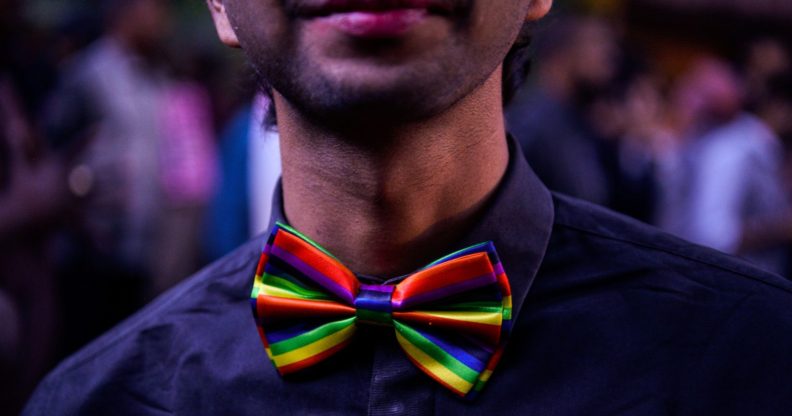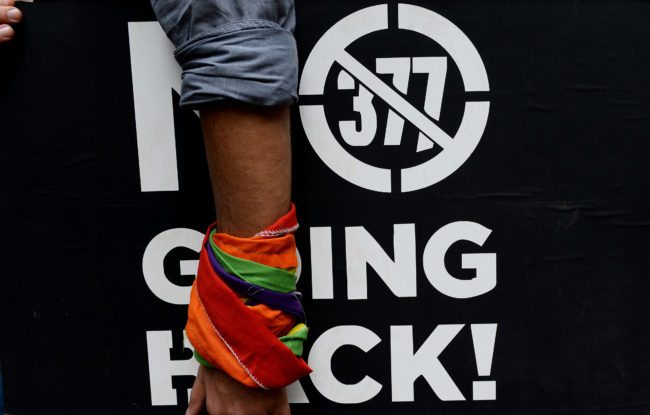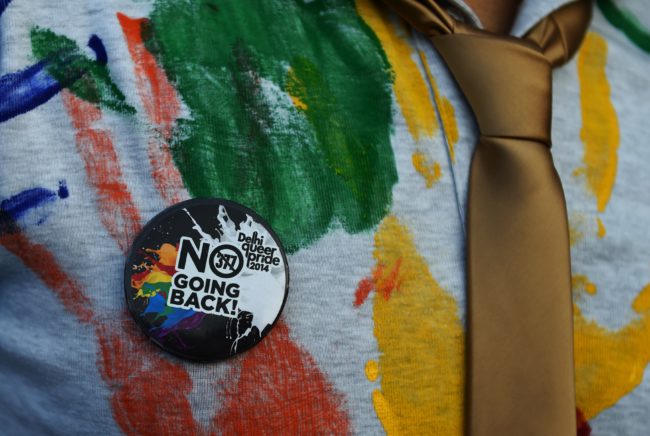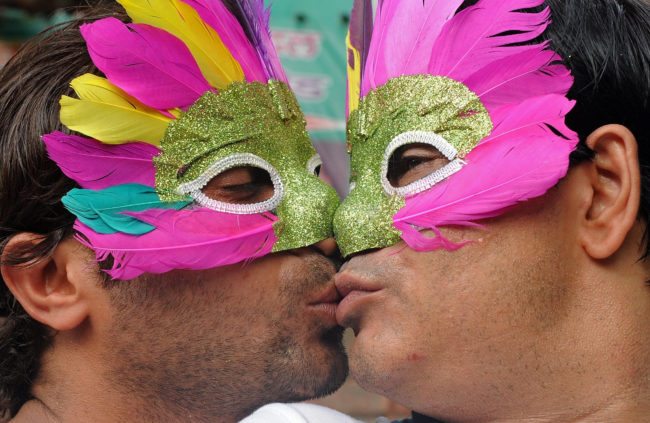Indian government told to pick a side on anti-gay law ahead of Supreme Court challenge

(CHANDAN KHANNA/AFP/Getty Images)
The Indian government has been asked to give its views on the country’s anti-gay sodomy law ahead of a Supreme Court challenge.
Colonial-era penal code Section 377, which criminalises sex “against the order of nature,” has widely been used to clamp down on the LGBT community in India.
LGBT campaigners have been calling for the repeal of the law since it was brought back into effect by a court ruling in 2013, but Prime Minister Narendra Modi has remained silent on the issue.
However, the country’s Supreme Court this week asked the government to weigh in on the issue.

Protesters against Section 377 (SAJJAD HUSSAIN/AFP/Getty)
According to the Times of India, the court headed by Chief Justice Dipak Misra issued a notice seeking the government’s views as it prepares to hear the legal challenge brought by 33-year old hotel owner Keshav Suri, who is in a same-sex relationship and is seeking to have the law struck down.
Suri’s representative Mukul Rohatgi said: “Persons from the LGBTQ community are ridiculed in various spheres of life. Equal work opportunities and pay is not given to individuals who have chosen their sexual orientation which is called ‘different.’
“The petitioner himself has suffered mentally and been stigmatised on account of his sexual orientation at personal and professional fronts. He had to deal with non-acceptance of his fundamental and intrinsic choice that is his homosexuality with his family and thereafter even professionally questions were raised about his sexuality, which does not normally happen with heterosexual individuals.
“In addition, the petitioner is constantly living under the fear of a false prosecution with Section 377 being on the statute book and the petitioner is unable to express his relationship and his right to choose his sexual partner without being worried. This is by no yardstick a life of dignity and respect.”

Protesters against Section 377 (SAJJAD HUSSAIN/AFP/Getty)
There have been positive signs from the Supreme Court in recent years indicating that justices could strike down the anti-gay law.
The court last year appeared to affirm that LGBT people deserve a basic right to a private life, while hearing a privacy case unrelated to the challenge against Section 377.
The nine-judge court affirmed: “Sexual orientation is an essential attribute of privacy.
“Discrimination against an individual on the basis of sexual orientation is deeply offensive to the dignity and self-worth of the individual.
“Equality demands that the sexual orientation of each individual in society must be protected on an even platform.
“The right to privacy and the protection of sexual orientation lie at the core of the fundamental rights guaranteed by [the Constitution].”

Protesters against Section 377 (PRAKASH SINGH/AFP/Getty)
The court also questioned part of the initial ruling that reinstated Section 377, which claimed the law was not discriminatory because it only impacted a “minuscule fraction of the country’s population.”
The justices reflected: “That ‘a minuscule fraction of the country’s population constitutes lesbians, gays, bisexuals or transgenders’ is not a sustainable basis to deny the right to privacy.
“The purpose of elevating certain rights to the stature of guaranteed fundamental rights is to insulate their exercise from the disdain of majorities, whether legislative or popular.
“The guarantee of constitutional rights does not depend upon their exercise being favourably regarded by majoritarian opinion. The test of popular acceptance does not furnish a valid basis to disregard rights which are conferred with the sanctity of constitutional protection.
“Discrete and insular minorities face grave dangers of discrimination for the simple reason that their views, beliefs or way of life does not accord with the ‘mainstream’.
“Yet in a democratic Constitution founded on the rule of law, their rights are as sacred as those conferred on other citizens to protect their freedoms and liberties.”.
Prime Minister Modi’s nationalist Bharatiya Janata Party MPs have consistently resisted bids to repeal the law through Parliament, and in 2016 a private members’ bill on the issue was voted down.
Modi’s Home Secretary Rajnath Singh insisted previously: “We support Section 377 because we believe that homosexuality is [an] unnatural act that cannot be supported.”
Shocking statistics previously showed that hundreds of men were being arrested under the reinstated anti-gay law, raising fears of a homophobic purge.

